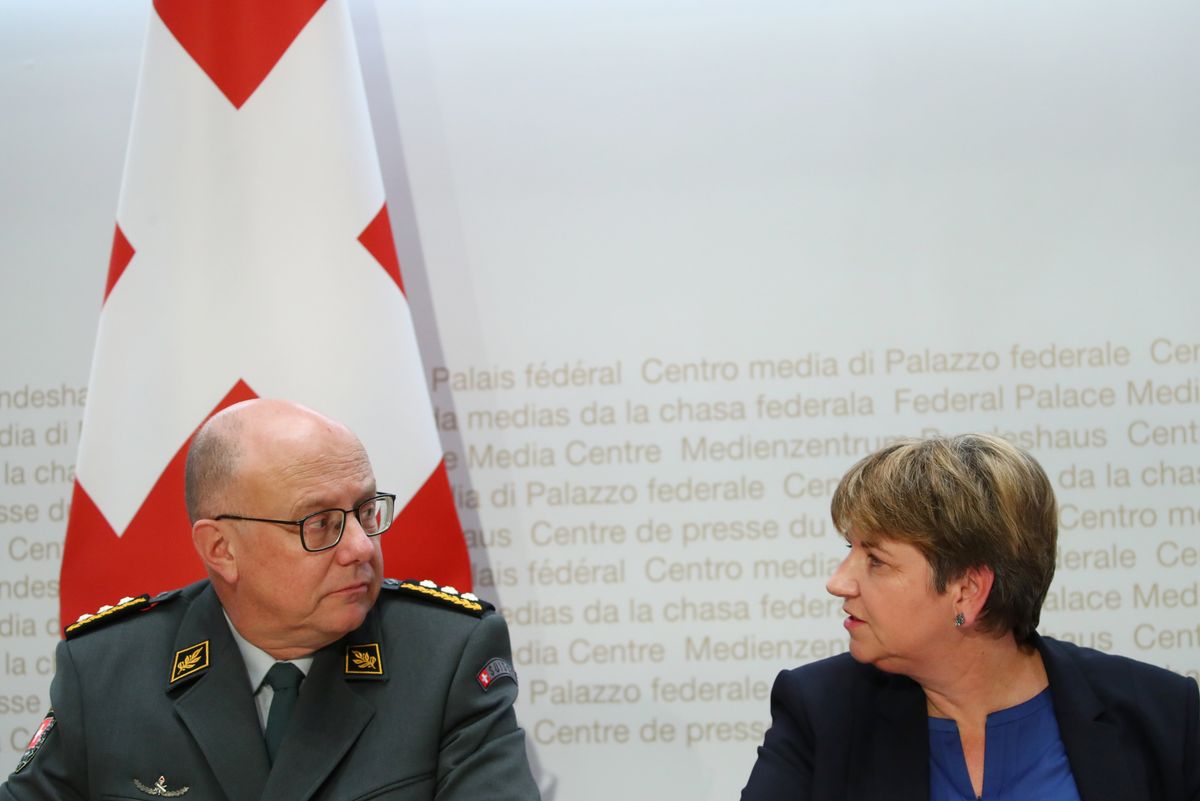Fresh out of Barnard College with a degree in political science, Riley is learning the ropes as a writer and reporter for GZERO. When she isn’t writing about global politics, you can find her making GZERO’s crossword puzzles, conducting research on American politics, or persisting in her lifelong quest to learn French. Riley spends her time outside of work grilling, dancing, and wearing many hats (both literally and figuratively).
Since 1515, Switzerland has practiced armed neutrality, priding itself on not getting involved in other countries’ affairs. But that could soon change if the land of William Tell joins the European Sky Shield air defense umbrella, which Bern announced on Tuesday it is keen to do.
The Swiss defense minister is expected to sign a declaration of intent to join the alliance when she meets with their Austrian and German counterparts on Friday. Critics fear this will undermine Switzerland’s neutrality and make it militarily dependent on foreign countries, while potentially turning the country into a target.
What is the Sky Shield initiative? Sky Shield is a German-led partnership of 17 European countries and counting. Modeled after Israel's Iron Dome, its goal is to bundle the continent’s efforts to defend against possible aircraft or missile attacks, balancing the costs and speeding up timelines. These defense systems will supplement and fill the gaps in the existing systems established by NATO.
Why join? Switzerland, which is not a member of the EU or NATO, has said that it will only join the alliance on the condition that it will not participate in international military conflicts. But the wealthy Alpine country has been under increasing pressure from its European neighbors to ease up on its commitment to neutrality since Russia invaded Ukraine. Though it did implement sanctions on Moscow, its banks — which are highly secretive and the biggest destination of off-shore wealth — have only frozen around $8 billion of the $49.3 billion of Russian assets in the country.
The Sky Shield decision is likely to ignite the debate over neutrality that has been ongoing since Russia invaded Ukraine. Switzerland’s defense minister had expressed an interest in upping its cooperation with NATO at a meeting in March. In response, conservative politicians are gathering signatures to get a referendum for a stricter interpretation of the Constitution’s neutrality requirement on the ballot in 2024. Neutrality is supported by 90% of the population, but in an era where war is no longer hypothetical, the Swiss are fighting over what that ideal really means.






